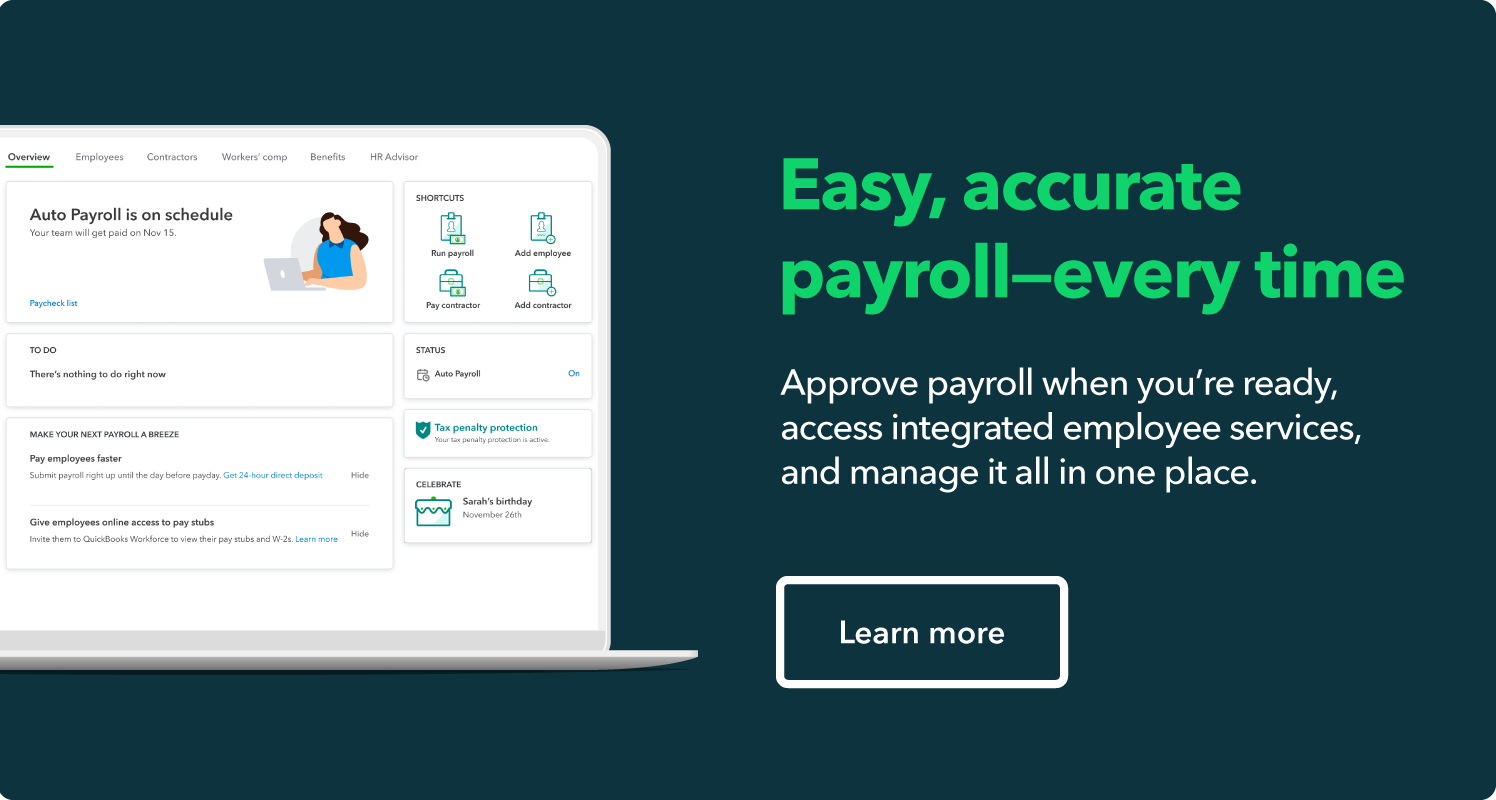Whether you’re just starting your small business, hiring new employees, or expanding your organization, it’s always smart to read up on payroll laws and regulations. Payroll laws exist to protect both workers and business owners and ensure that workers are paid fairly and promptly for the labor they provide.
Our guide will explain the basics of payroll regulations: what they are, what types exist, and how they apply to your business. We’ll also review a few tips and tools that you can implement in your workplace to help stay on top of all the payroll laws that may apply in your state and your industry.
The topics we will cover include:
- What are payroll regulations?
- Types of payroll laws
- Compensation requirements
- Pay frequency requirements
- Workers’ compensation
- Employment taxes
- What is payroll compliance?
- How to ensure your business complies with payroll laws
- Manage payroll and remain in compliance with QuickBooks
Keep reading for an introduction to payroll laws, or click on one of the links above to jump straight to the section that answers your question.












